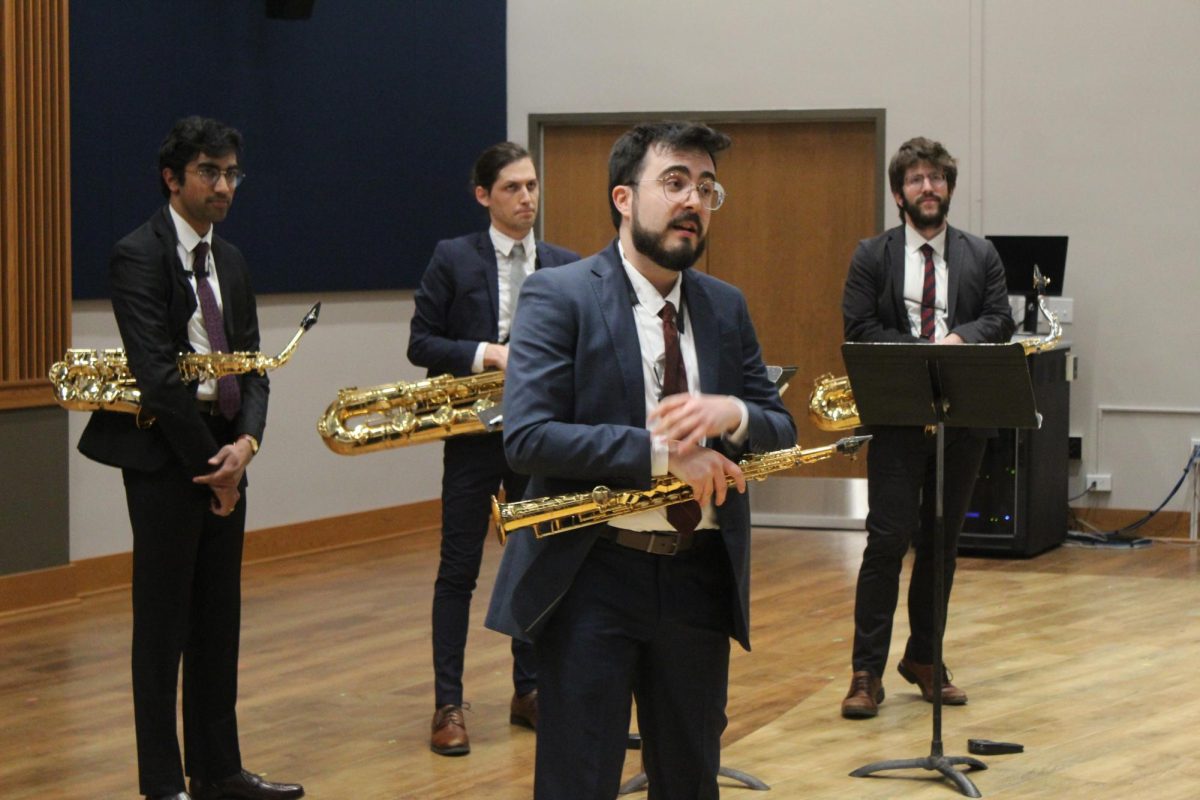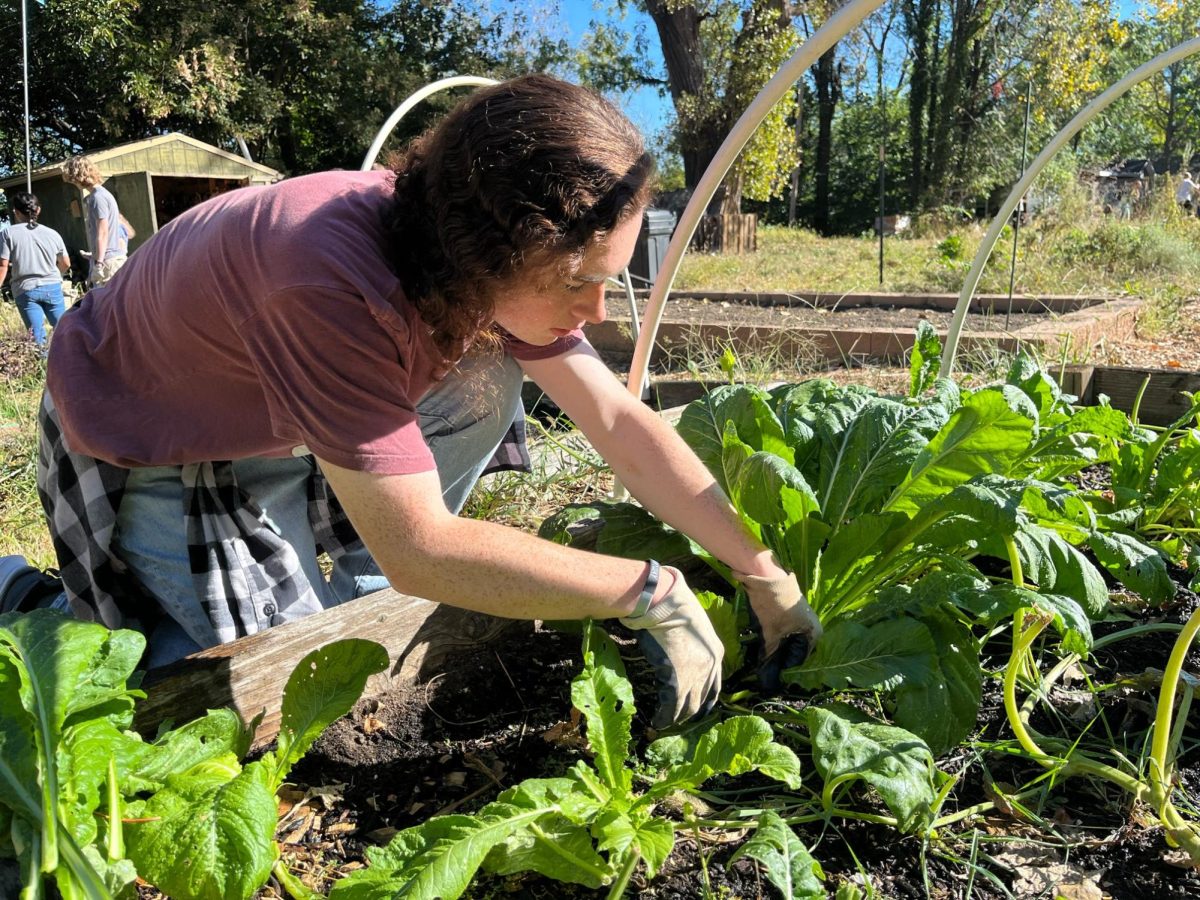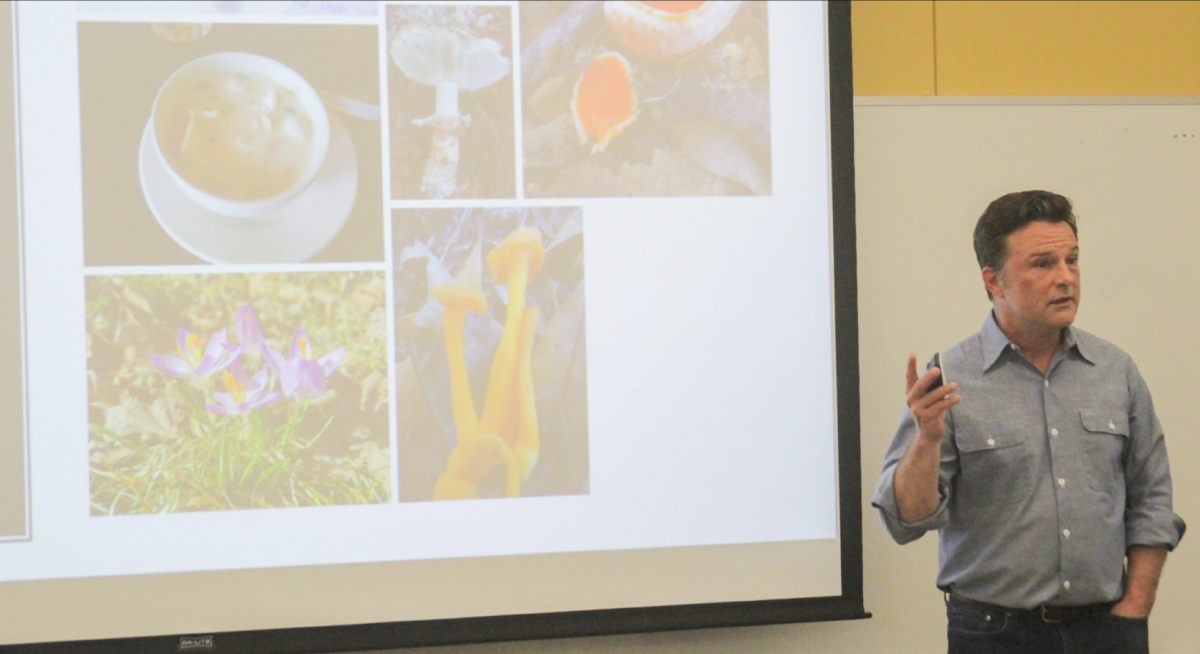Transportation, time, money and mental energy: a not-at-all exhaustive list of the limitations of undergraduate students. Augustana’s website claims that 50% of students are working towards more than one major and about 40% are involved in Greek life.
Academic work, employment and more eat away at precious free time.
For on-campus clubs, this is one of many obstacles sitting in the way of increased membership and attendance.
On the other hand, clubs can provide experiences which don’t exist anywhere else at Augustana, making them a valuable place for students to relax, connect and grow.
By doing a little seeking, students can find new hobbies and new friendships through club membership.
Sophomore Curtis Baldwin found himself in Yarn Club, a tight-knit group of people, at the end of his first year, joining as their secretary.
“I really enjoy it because I’ve got a group of friends that have kind of formed around this club,” Baldwin said.
Yarn Club meets every Wednesday from 8:15 p.m. to 9:15 p.m. in the You Belong Here Lounge to do exactly what the name suggests: fiber art.
Using their own supplies or the club’s community bin of crochet hooks and yarn, its members turn a single strand of material into hats, blankets, bags, stuffed animals, tapestries and more.
“I’ve made a couple of frisbees with a crochet circle,” Baldwin said. “You can chuck them around remarkably well.”
But what if you don’t know how to crochet? One answer to that question is that club members do so much more than crocheting.
Embroidery, knitting and weaving are popular and encouraged. A second answer lies in the club’s relaxed nature and willingness to work together.
Baldwin picked up crocheting less than a year ago, and one of his favorite projects, a crocheted houseplant, was the result of collaboration.
“Helena, the president, helped me with it, so I worked on the base of the pot and stuff, and they helped me with the hanging part and the leaves,” Baldwin said.
Even if you’ve never tried to knit, crochet or embroider before, yarn club has space for you.
Whether you’re just learning or working on a months-long project, Baldwin said that the environment is very low-pressure.
“We kind of just sit and hang out and do yarn stuff,” Baldwin said. “People sometimes come to do homework; it’s not a strict commitment.”
Especially for undergraduates, having a relaxed environment, a hobby and a group of people to engage with after a busy day can be invaluable.
Creative outlets like the fiber art supported by Yarn Club are a way to self-express and unwind from the stress of academics.
For students who may find it difficult to weave Yarn Club into their week, options are far from gone. In addition to hobby-focused groups, Augustana is home to clubs supporting educational interests and engagement in specific subjects.
Collegia Classica, which meets on Fridays from 7:00 p.m. to 8:00 p.m. in Old Main, gets its name from Latin, translating to “Classics Club.”
Affiliated, not too surprisingly, with the Classics department at Augustana, it blends elements of academia with entertainment and a focus on Greek and Roman culture and language.
Senior Allie Anderson, co-president of the club, said that there are activities for everyone.
“We do a lot of movie nights; we watched Hadestown last semester,” Anderson said. “Sometimes people will make Roman-inspired foods, which are very strange.”
If you have a passion for cooking and an interest in history or mythology, Collegia Classica might be the place to share your skills with a group who will taste-test ancient recipes. An interest in theater could turn into a movie night or an analysis of scenes from ancient Greek tragedies.
Because the club sees varied interests, its offerings are just as rich for classics majors, minors and unaffiliated students. Anderson said that the interests of individual members dictate the topic and flow of meetings.
“Every year we do things a little bit differently because we have different people in the club bringing different things to it,” Anderson said.
Collegia Classica’s focus on individuals and their expertise creates unique opportunities for students with niche interests. One such opportunity is the chance to present your own research to the group.
“If a student has a research interest, they might come in and share a little bit about that,” Anderson said. “We have one member who’s really into the Roman military, and we gave them the opportunity to lead a club meeting.”
Collegia Classica holds a potato-painting party in the fall and a campus-wide Language Olympics in the spring. Both are classics-focused, with the former referencing the lack of a more traditional pumpkin in ancient Rome and the latter celebrating linguistic history and the variety of languages spoken on campus.
For Anderson, membership in Collegia Classica is a way to support her fellow students of all fields and push back against the tradition of a homogenous group of classics experts.
“Classics has been dominated by old British men for so long that getting as many people interested in it as possible is so important,” Anderson said. “Basically any field you can think of overlaps with classics, even science and math.”
Of course, there is a limit to just how much time students can put towards club membership. After all, a busy calendar only has so much room. Even so, joining a club can be a smaller commitment than it first seems.
Mycology Club members turn spare time into spore time, learning about mushrooms and other fungi.
Sophomore Christian Gonzalez, who founded and now leads the club, said that fungi, like the time commitment of a club membership, are so much smaller than you might realize.
“Of perhaps three to five million fungi, many of them—probably 70%—are microscopic and never form what we would know as a mushroom,” Gonzalez said.
Facts like this one are found in droves at Mycology Club meetings, but its members prefer learning by experience.
Rather than just studying fungi from the comfort of an air-conditioned classroom, meetings are often centered around the acts of exploration and discovery.
“We get together and go out on a nature walk where we observe and document any fungi we see,” Gonzalez said.
The nature of fungus means that seeing the majority of its species is impossible with the naked eye. Even so, Gonzalez said that there is plenty to be observed on campus alone.
“Walking along the Slough Path, you might notice that dead tree that has all those different polypores growing,” Gonzalez said. “You’ll notice tiny mica ink caps and, probably later in the season, dead man’s fingers.”
Nature can be beautiful and fascinating but also difficult to navigate for some. Hosting excursions on-campus and in the paved, shaded areas like the slough path make the club more accessible to people who find heat and uneven terrain difficult.
Mycology Club operates through Augustana’s Sierra Club and shares its meeting time and location on Tuesday at 6:00 p.m. in Lindberg 203.
The two groups recently met to host guest speaker Joshua Shomo, a local expert on mycology, and enjoyed noodles with foraged morel mushrooms.
On Saturday, Mycology Club visited Black Hawk State Park in Iowa to observe and document fungus. Gonzalez said that the appreciation of fungi shouldn’t be limited to just environmental fields.
“Let’s say you’re in psychology or behavioral sciences. Maybe you’d like to join to discuss the Lion’s Mane mushroom and something it does called neurogenesis,” Gonzalez said. “They’ve studied this in lab rats and humans; your nerves regrow and rekindle connections between each other once they’ve been lost.”
Engineering majors rejoice, for the abilities of slime molds might grab your attention too.
“In Japan, researchers laid out [a map of] the subway system and found that slime molds built the most efficient route from every single point to the other ones,” Gonzalez said.
In Mycology Club, there’s space for all types of interests. The nature of mycological research means that it intersects with biomedical fields, psychology, engineering and more. Club members of different backgrounds bring their own knowledge and interests to meetings. Joining Collegia Classica could be a chance to share your research or enjoy a good movie. Yarn Club may be just the space you need to exercise your creativity, learn a new skill or create something both useful and beautiful.
Clubs are made by and for their members and can be spaces of joy and growth regardless of their size.











































































































